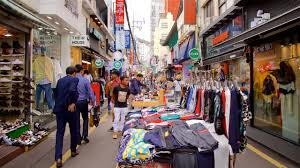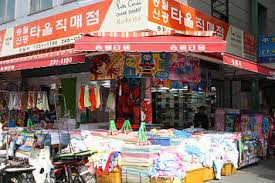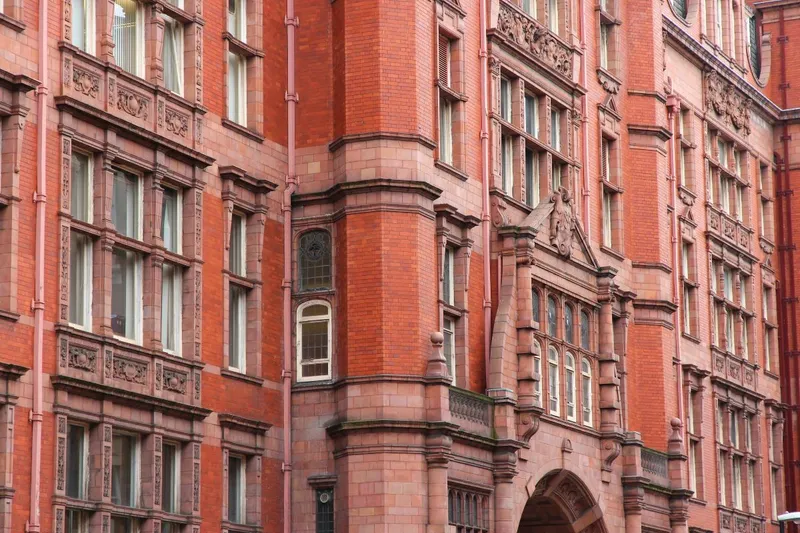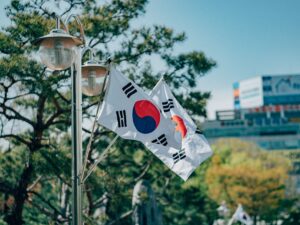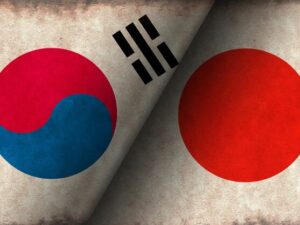A group of 13 tourists were forced to buy a total of 37,000 Taiwan dollars’ worth of ginseng at a ginseng shop during a trip to Busan, South Korea, after a guide verbally abused them. At the next store they visited, a liver medicine (health food made from kenponashi), they argued with the guide but were forced to buy 15 bottles (about 124,600 yen), which was the target price the guide had suggested. The staff blocked the entrance and exit so that the group could not leave.” [Photo] Taiwanese broadcaster reporting a case of pushy sales in Korea “The guide forced us to shop, even though our travel contract clearly stated that we were not obligated to shop. I will never go to Korea again.” The first case cited was reported by TVBS, a major broadcaster in Taiwan, on August 20 in response to information provided by a Taiwanese tourist who visited Busan. The second case is a video taken by a Chinese visitor to South Korea and posted on the Chinese social media (SNS) site “Dooine (TikTok’s domestic version in China, not viewable overseas)” on September 13. The content was independently obtained by the JoongAng Ilbo. Although it appears as if the image of Korean tourism has risen with the growing influence of Hallyu, this is not the case. The shameful reality of “cheap dumping tourism” has not changed. A video on the Chinese SNS “Doo-Yin” vividly captured a scene of a heated argument between a guide and a tourist over a shopping issue. A Korean guide, presumed to be a Chinese overseas Korean, is shouting, “If you don’t shop, get out of the car. When the tourist asked if he had to shop, the guide replied, “You are on a shopping tour, so it is natural that you should shop. When the argument continued, the guide swore in Korean at one point. At the end of the video, the Chinese tourist, who revealed his age to be 70, said, “I never thought the standards of Korean guides were so low,” and “Annyeong forever, Korea. To be honest, it is not an uncommon incident for foreigners visiting Korea to experience discomfort and arguments over forced purchases at souvenir stores. Why? It can be understood by looking at the method of foreign dumping tourism. Foreign group tourists come to Korea on a package tour, paying only about the cost of airfare. When they come to Korea, they take a quick sightseeing tour around free tourist attractions in Seoul, Busan, Jeju, and wherever they go, and visit souvenir stores and duty-free stores several times. The travel agency and guide make up the deficit with the commission given by the duty-free store and shopping center depending on the amount of purchases made by the customer. This is why the guides’ relentless extortion continues, even though the travel contract states that there is no obligation to shop. Such dumping tourism is especially rampant among Chinese group tourism. Overheated competition among domestic travel agencies is the most significant cause. Before the Corona disaster, there were not only “minus tours” that were prepared to lose money, but there was even a “headcount tax” that gave Chinese travel agencies additional money per tourist to buy groups. Chinese tourists are taken only to free tourist spots. Chinese group tourism resumed on August 10, the first time in six years and five months since the Chinese government issued the “Restrict Korea Order” in retaliation for the deployment of THAAD (THAAD High Altitude Area Defense missiles). The Korean tourism industry had high expectations. On September 7, the Korea Association of Travel Agents (KATA) held a rally with Korean travel agencies specializing in Chinese tourists. The aim was to break away from the “capitation tax, heated budget competition, negative tour costs, and forced shopping. However, they failed to recognize the reality: “Unlike in the past, the tourism market has changed to the extent that travel agencies cannot make up the deficit even with shopping commissions,” said Oh Chang-hee, chairman of KATA, “The bad practices of the past have improved significantly. The same was true after checking with several travel agencies specializing in China. They replied that the current situation in Korea is not conducive to accepting the too-low prices demanded by Chinese travel agencies. So are the images posted on SNS unusual? Let us examine the example of a 4-night/5-day trip to Seoul by Chongqing China Youth Travel Service, a medium-sized travel agency in Chongqing, China. The cost per person, including airfare, is 2,580 yuan (approximately 52,700 yen), and all four nights are spent at a business-class hotel in Incheon. The only paid tourist attraction is Gyeongbokgung (2,400 won per adult in a group of 10 or more foreigners), and the tour will visit only free tourist attractions such as Cheonggyecheon, War Memorial Museum, Bukchon Hanok Village, and Wolmido Island. Instead, they visit duty-free stores and other souvenir stores such as ginseng and kemponashi at least eight times. The itinerary of C Trip, China’s largest travel agency, is almost the same. Mr. C, a tour guide, said, “If Chinese travel agencies sell products at these prices, it means that there are many Korean travel agencies that accept such products,” adding, “Group tours by Chinese tourists will be dominated by dumped products that are all about shopping.
